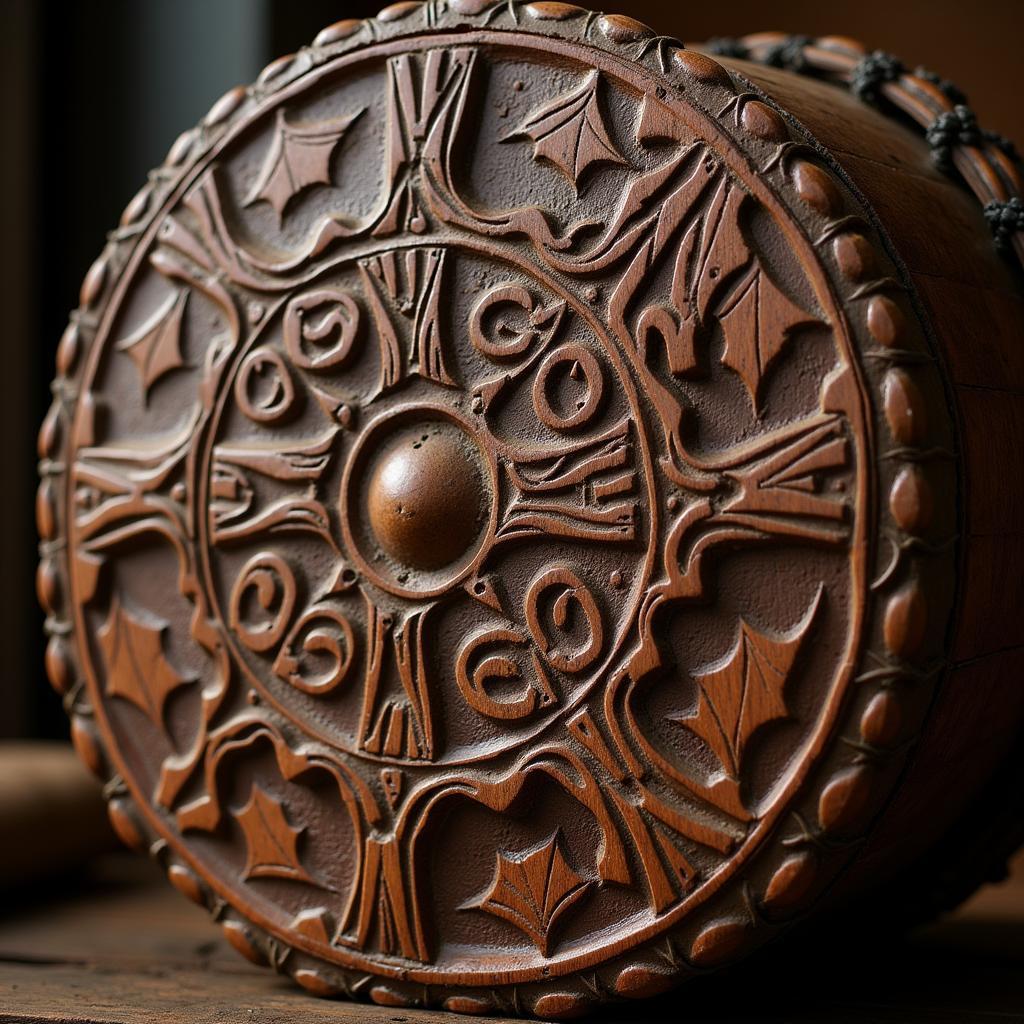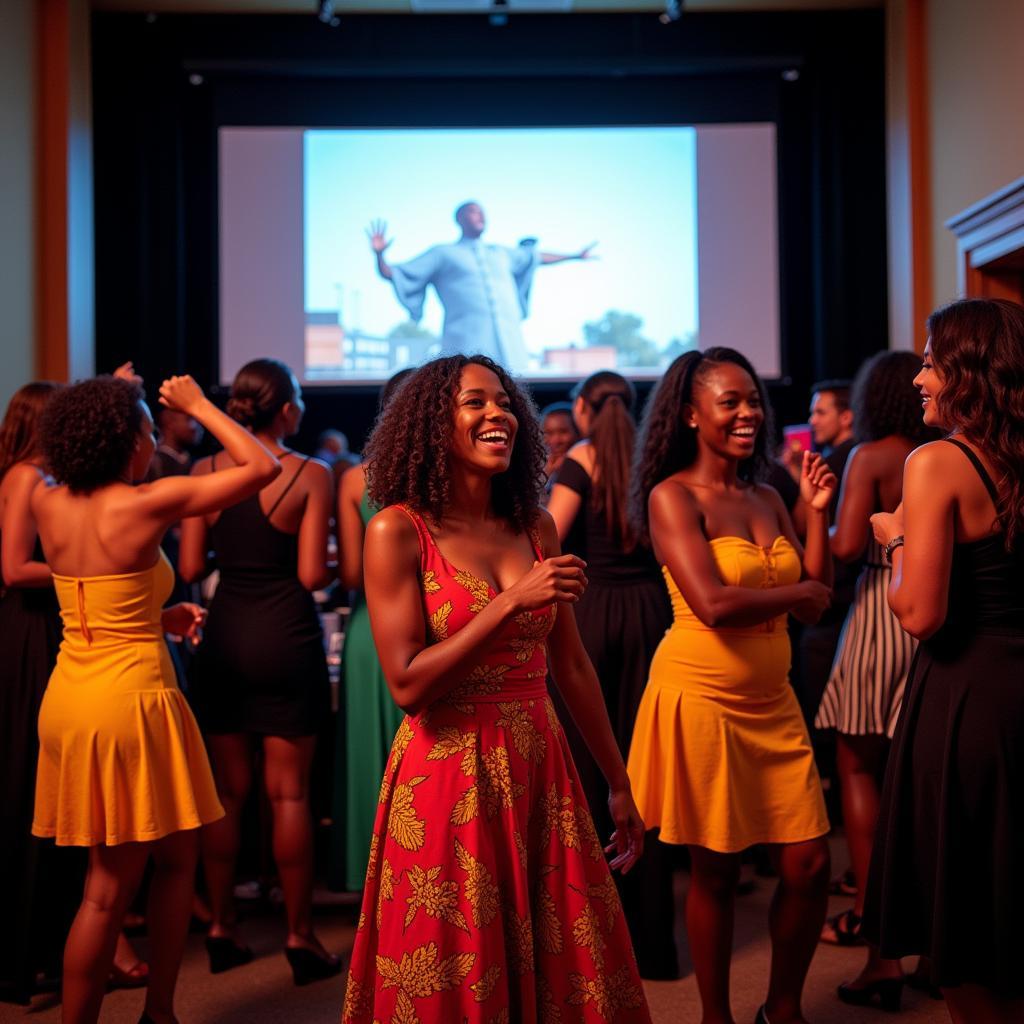A Deep Dive into African American Theatre History
African American Theatre History is a rich tapestry woven with threads of resilience, creativity, and social commentary. From its roots in minstrel shows and vaudeville to the powerful dramas of the Black Arts Movement, this vibrant tradition reflects the struggles and triumphs of African Americans throughout history. This article explores the evolution of African American theatre, highlighting key figures, movements, and plays that have shaped its unique narrative.
Let’s embark on a journey through time, tracing the footsteps of those who paved the way for a dynamic and impactful theatrical landscape. We’ll explore how African American theatre not only entertained but also educated, empowered, and inspired generations. Check out this timeline of African American theatre: african american theatre timeline.
Early Influences: Minstrelsy and Vaudeville
The early years of African American theatre were heavily influenced by minstrel shows, a popular form of entertainment in the 19th century that often portrayed racist caricatures of Black people. While deeply problematic, these performances provided some of the first opportunities for Black performers to gain visibility on stage. Vaudeville, with its diverse array of acts, also offered a platform for Black talent, allowing artists to showcase their skills in music, dance, and comedy.
The Rise of Black Playwrights: Challenging Stereotypes
The early 20th century witnessed the emergence of Black playwrights determined to challenge the stereotypical portrayals prevalent in mainstream theatre. These pioneering artists crafted plays that explored the complexities of Black life, giving voice to the hopes, dreams, and struggles of their communities.
The Harlem Renaissance: A Flourishing of Creative Expression
The Harlem Renaissance, a period of immense cultural and artistic flourishing in the 1920s and 1930s, marked a pivotal moment in African American theatre history. Playwrights like Langston Hughes and Zora Neale Hurston created works that celebrated Black identity and explored themes of racial injustice, social inequality, and the search for cultural identity.
The Black Arts Movement: Theatre as a Tool for Liberation
The Black Arts Movement of the 1960s and 70s further revolutionized African American theatre. Inspired by the Civil Rights Movement, playwrights like Amiri Baraka and Ed Bullins used theatre as a tool for social and political activism. Their powerful and often confrontational works addressed issues of Black liberation, systemic racism, and the fight for equality. You can learn more about influential figures in African American theatre and the arts through resources like african american ballerina.
Contemporary African American Theatre: Diverse Voices and Perspectives
Contemporary African American theatre continues to evolve, showcasing a diverse range of voices and perspectives. Playwrights like August Wilson, Suzan-Lori Parks, and Lynn Nottage have garnered critical acclaim for their works that explore the nuances of Black life in America, tackling themes of family, identity, and the legacy of slavery. For a deeper understanding of African American drama, explore resources like african american drama in pdf.
What are some key themes explored in African American theatre?
African American theatre often explores themes of racial identity, social justice, family dynamics, the legacy of slavery, and the Black experience in America.
Who are some influential figures in African American theatre history?
Influential figures include Langston Hughes, Zora Neale Hurston, Amiri Baraka, August Wilson, Suzan-Lori Parks, and Lynn Nottage. Explore more about African art and culture in resources like african arts magazine back issues.
Conclusion
African American theatre history is a testament to the power of artistic expression to reflect, challenge, and inspire. From its humble beginnings to its current vibrant state, this rich tradition has played a vital role in shaping American culture and amplifying the voices of African Americans. African American theatre history continues to evolve, offering a powerful platform for exploring the complexities of the human experience and advocating for social change. Consider exploring unrelated topics, for instance, african jungle nude.
FAQ
- What is the significance of the Harlem Renaissance in African American theatre?
- How did the Black Arts Movement influence theatre?
- Who are some contemporary African American playwrights?
- What are some common themes explored in African American theatre?
- Where can I find resources to learn more about African American theatre history?
- How has African American theatre contributed to American culture?
- What are some notable plays in African American theatre history?
Common Scenarios
- Scenario 1: A student researching the history of African American theatre for a school project.
- Scenario 2: A theatre enthusiast looking to expand their knowledge of different theatrical traditions.
- Scenario 3: An individual interested in learning more about the cultural contributions of African Americans.
Further Exploration
You might also be interested in learning about the history of African American music, literature, or visual art.
Contact Us
When you need assistance, please contact us. Phone: +255768904061, Email: kaka.mag@gmail.com or visit us at: Mbarali DC Mawindi, Kangaga, Tanzania. We have a 24/7 customer service team.



